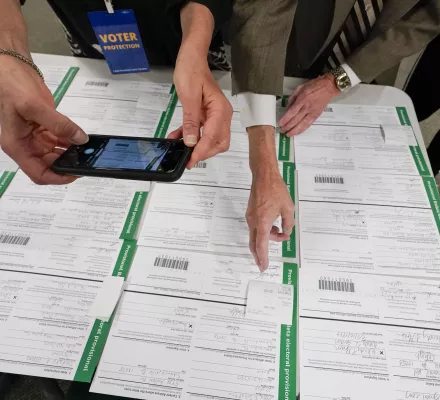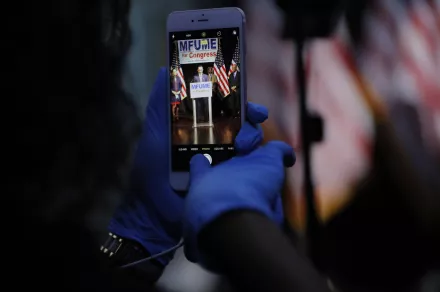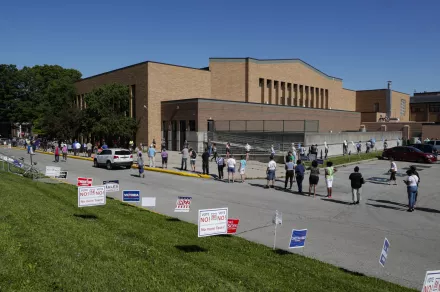
The Election Influence Operations Playbook
The threat of Influence Operations (IO) strikes the core of our democracy by seeking to influence hearts and minds with divisive and often false information.
Although malicious actors are targeting the whole of society, the upcoming “The Election Influence Operations Playbook” focuses on a subset of influence operations—the types of disinformation attacks and misinformation incidents most commonly seen around elections, where election officials are best positioned to counter them.
The threat of Influence Operations (IO) strikes the core of our democracy by seeking to influence hearts and minds with divisive and often false information. Although malicious actors are targeting the whole of society, the upcoming “The Election Influence Operations Playbook” focuses on a subset of influence operations—the types of disinformation attacks and misinformation incidents most commonly seen around elections, where election officials are best positioned to counter them.
This Playbook includes guides that aim to provide election officials with resources and recommendations on how to navigate information threats targeting elections. It offers an introduction to Election Influence Operations: what they are, how they work, and why they can impact our elections. It also includes recommendations for reporting, responding and countering mis and disinformation incidents around elections.
This Playbook is meant to be a starting point and can be adapted for a jurisdiction’s needs. We hope it will be a useful resource for state and local election officials working to protect our elections and democracy from these evolving threats.




Part 1: Understanding Election Mis and Disinformation
This section of the Playbook provides an introduction to Influence Operations: what they are, who is carrying them out, why they can impact our elections, and how they work.
This playbook explores mis and disinformation incidents that specifically focus on elections operations and infrastructure. Throughout these guides, we refer to mis/disinformation as one concept, since the strategies for countering or responding to them are the same.

Part 2: Mis/ Disinformation Response Plan
This section of the Playbook includes recommendations and materials focused on the response process. It will help election officials respond to election-related mis and disinformation incidents quickly and in a coordinated fashion.
In this Playbook, we refer to mis/disinformation throughout as one concept. Instances of both misinformation (unintentional) and disinformation (intentional) in the elections process provide incorrect information to voters. For election officials, any incorrect information presented to voters, regardless of source or intention, can pose a threat to elections because it can undermine voters’ understanding of and trust in the election.
Because mis/disinformation can occur before, during, and after elections, recommendations in this guide support officials throughout each phase. While there is no one solution to countering mis/disinformation incidents, the response plan will help officials prepare and respond as tactics evolve.

Part 3: Mis/Disinformation Scenario Plans
This section complements Part 1 and Part 2 of the Playbook and is available exclusively for election officials’ use. It provides specific recommendations and scenario-based materials to aid state and local election officials in building a response plan.
This guide includes materials for six mock scenarios that could occur and spread on social media: (1) false voter identification requirements spread online; (2) congestion is causing polling places to turn voters away; (3) political partisans are “stealing the election;” (4) the people who run elections are corrupt; (5) false claims that poll places are closed due to COVID-19; and (6) false claims of a judicial/official order to delay the election.
